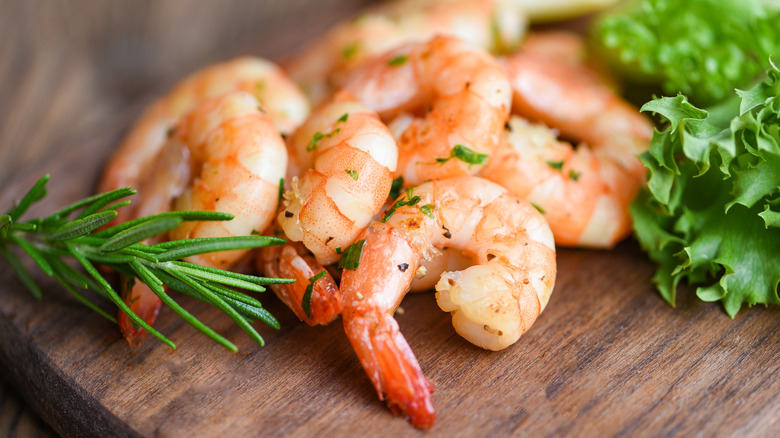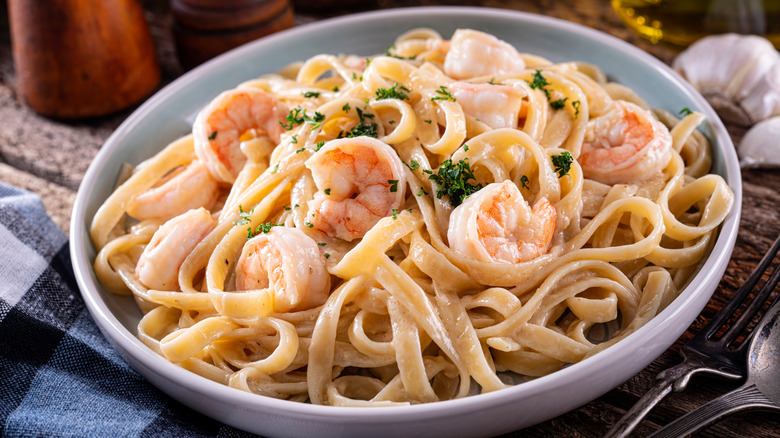The Foolproof Way To Know When Shrimp Is Perfectly Cooked
No matter what type of meat you're cooking with, you can oftentimes tell its doneness by color alone. For instance, you can typically know that fish is ready when it's no longer translucent (or you can stick it with a skewer), and pink on the inside of a piece of chicken is a surefire indicator that it needs a bit more time on the heat. The same goes for beef, too.
Shrimp, on the other hand, is a little different. Namely, you can't trust the color. Even though it starts out gray when it's still raw, shrimp stays pink whether it's overcooked or made to perfection. The most accurate way to find out for sure is by using a thermometer.
According to Substitute Cooking, 165 F is the sweet spot for perfectly done shrimp. That's when you know it's time to take it off the heat. Of course, not everyone has a thermometer at the ready, so for a more visual indicator, Taste of Home recommends going by shape. As soon as the shrimp begins to curl into a C, that's how you know it's ready and time for the seafood to leave the pan as quickly as possible. If it starts to tighten into an O, then we must deliver the bad news that it's already overcooked.
How to avoid overcooking shrimp
If you're short on time but still want to whip up a meal from scratch, shrimp is always a good option. It's known for being a pretty fast protein to cook, but that also means it's notoriously easy to overcook. Southern Living explains that shrimp only takes a short 2-3 minutes to reach doneness. However, this also depends on the size of your shrimp and how many pieces you're cooking. Another factor to note is that unshelled shrimp will take slightly longer, though the maximum cooking time is typically five minutes.
Therefore, it's best not to take your eyes off the shrimp at any point during the process. Because shrimp can turn rubbery and tough fairly quickly, it's important to remove the shrimp from the stove or grill as soon as you hit that target temperature or see that C-shape forming. This will prevent the shrimp from cooking any further from residual heat. That way, you're just about guaranteed delicious shrimp every time.

